
Table of Contents
Scientific Classification
- Kingdom: Animalia
- Phylum: Chordata
- Class: Reptilia
- Order: Squamata
- Family: Cordylidae
- Genus: Ouroborus
- Species: Ouroborus cataphractus
Quick Overview
The Armadillo Girdled Lizard (Ouroborus cataphractus) is a remarkable and unique reptile native to arid regions of southern Africa. This lizard has earned its name due to its striking appearance and the protective armor-like scales encircling its body. Armadillo Girdled Lizards are a fascinating species sought after by reptile enthusiasts worldwide.
Fast Facts
- Scientific Name: Ouroborus cataphractus
- Lifespan: Approximately 15-20 years in captivity.
- Average Size: Adults typically range from 4 to 6 inches in length.
- Diet: Insectivorous, primarily feeding on small insects and arthropods.
- Habitat: Terrestrial, inhabiting rocky outcrops and crevices in arid, desert-like environments.
Did you know?
Armadillo Girdled Lizards are also known as “Ouroborus Lizards” due to their scientific genus name, which is derived from the ancient symbol of a snake eating its own tail, known as the Ouroboros.
Appearance
Armadillo Girdled Lizards are recognized for their captivating appearance. They have small, stocky bodies covered in a unique armor of thick, overlapping scales. These scales create a girdle of protection around their body, making them appear like miniature armadillos. Their coloration can vary from brown to gray or even reddish, providing camouflage among the rocky terrain.
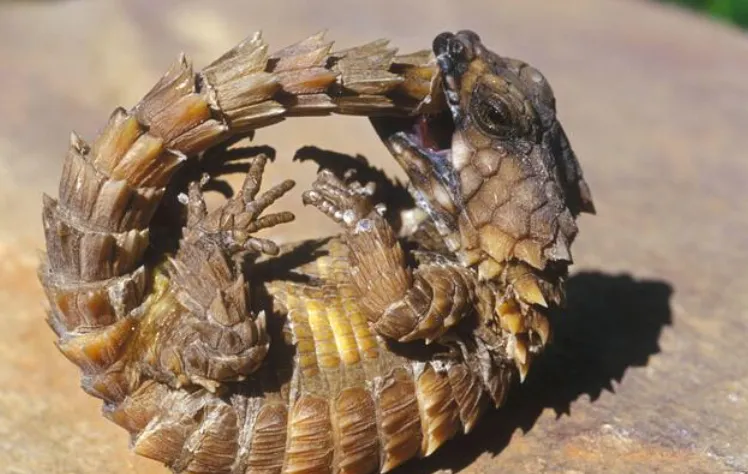
Size and Weight
Adult Armadillo Girdled Lizards are relatively small, with typical lengths of 4 to 6 inches, although some individuals may reach up to 8 inches. Their weight generally ranges from 1 to 2 ounces, depending on their age and health.
Temperament and Behavior
Armadillo Girdled Lizards are known for their gentle and relatively docile nature. While they may initially be timid or defensive when handled, they often become more relaxed with regular, gentle interactions. They are primarily solitary creatures and are well adapted to their rocky habitat.
Fun Fact
To deter potential predators, Armadillo Girdled Lizards can curl into a ball, similar to armadillos. When rolled up, they present a challenging, armored exterior that is challenging for predators to breach.
Habitat and Distribution
These lizards are native to arid and rocky regions of southern Africa, including South Africa, Namibia, and parts of Botswana. They prefer habitats with ample crevices and rocks to shelter in and thrive in environments that mimic their natural rocky outcrops.
Care Guide
For those interested in keeping Armadillo Girdled Lizards as pets:
- Habitat: Provide a well-structured enclosure with rocky hiding places and secure lids, as these lizards can be good climbers and escape artists.
- Temperature: Maintain a temperature gradient, with a basking spot reaching around 95-100°F (35-38°C) and cooler areas around 75-80°F (24-27°C).
- Substrate: Use a suitable substrate, like sand, to mimic their natural habitat.
- Diet: Offer a diet consisting primarily of small insects and arthropods like crickets, mealworms, and roaches.
- Health Check-ups: Regularly monitor the lizard’s health, and provide access to UVB lighting to support their calcium absorption.
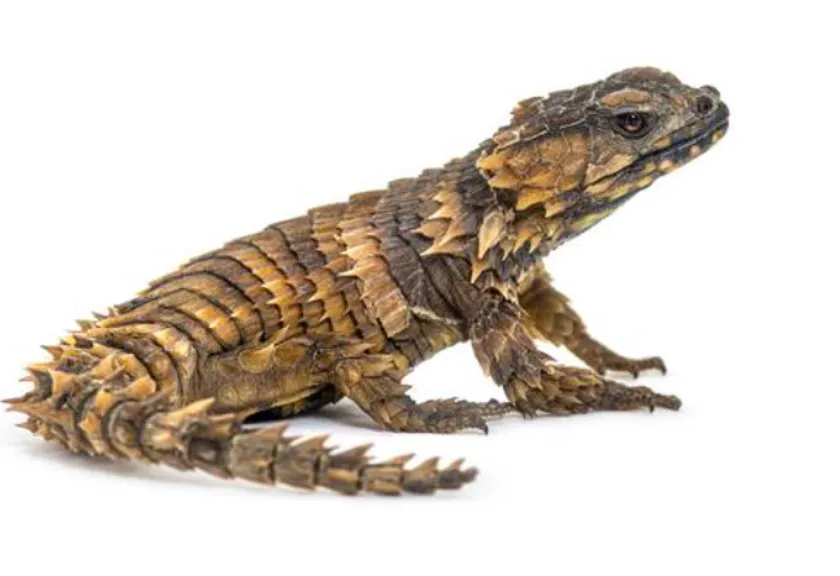
Diet and Nutrition
In the wild, Armadillo Girdled Lizards feed on various small insects and arthropods. In captivity, their diet can include appropriately-sized feeder insects. Dusting their
Health and Wellness
Providing a habitat with proper temperature and humidity, along with access to UVB lighting, is essential for the well-being of Armadillo Girdled Lizards. These lizards are relatively hardy when kept in suitable conditions.
Breeding
Armadillo Girdled Lizards reproduce by laying eggs. Breeding is a complex process and requires careful temperature and humidity regulation. Females lay clutches of eggs, which incubate for several months before hatching.
Conservation Status
Armadillo Girdled Lizards are not considered endangered, but habitat destruction and collection for the pet trade have led to localized declines in some populations. Conservation efforts aim to protect their natural habitats and maintain their numbers.
Photo Gallery
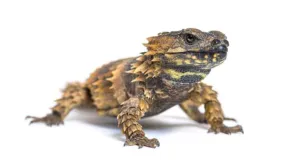
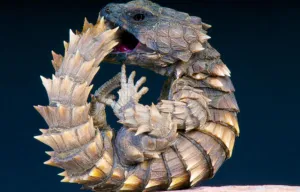
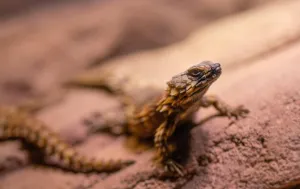
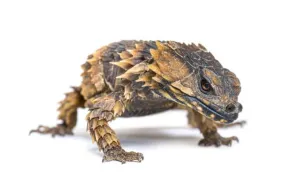
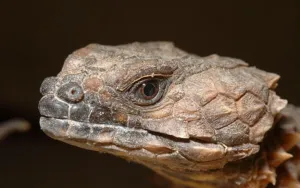
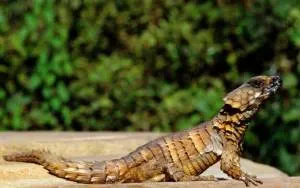
Related Profiles
Share This Profile
3 Fascinating Facts About Armadillo Girdled Lizards
- Camouflaging Masters: Armadillo Girdled Lizards have a remarkable ability to blend into their rocky environments due to their intricate scale patterns, which act as excellent camouflage.
- Unique Defense Mechanism: Besides rolling into a ball, Armadillo Girdled Lizards can also release their tail if captured, allowing them to escape and later regenerate a new tail.
- Slow Metabolism: These lizards have a slow metabolic rate, which means they don’t require frequent feeding and can be low-maintenance pets compared to some other reptile species.
- Enchi Ball Python: A Unique and Stunning Morph of Python regius - March 27, 2025
- Emerald Tree Monitor: The Enigmatic Green Guardian of the Rainforest - March 26, 2025
- The Egyptian Cobra (Naja haje): A Fascinating Serpent - March 25, 2025
